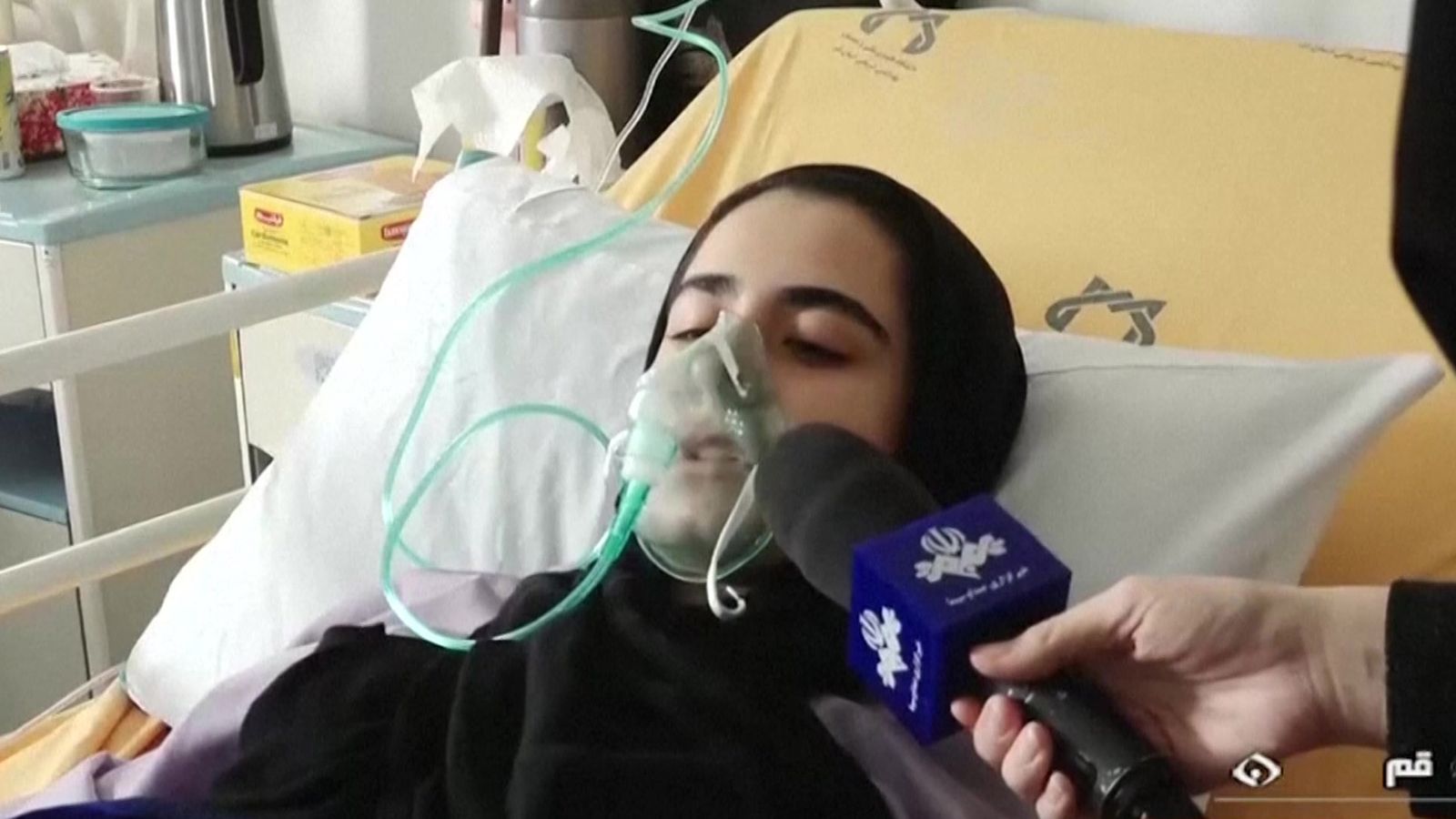Hundreds of female pupils in Iran have been subjected to poisoning attacks in classrooms in what is believed to be an attempt to stop them attending school.
Young girls became overpowered by what are said to be noxious fumes wafting into their classrooms, with some needing hospital treatment after complaining about headaches, heart palpitations, feeling lethargic and being unable to move.
Up to 400 pupils at around 30 schools, identified in local media reports, are said to have been affected in the past three months.
The first cases in November last year are believed to have happened in Qom, around 125km (80 miles) southwest of Tehran – where some fearful parents are pulling their children out of school as a precaution, according to reports.
Students at the Noor Yazdanshahr Conservatory became unwell in November last year, before falling ill again a month later.
Some pupils described smelling tangerines, chlorine or cleaning agents.
At least one more case followed in Tehran, followed by others in Qom and the city of Boroujerd, around 400km (248 miles) from the capital.
Iran’s most senior diplomat summoned to Foreign Office again after assassination threats to UK journalists
Iran International editor says Tehran threats ‘getting out of hand’ after TV channel forced to leave UK
UK-based Iranian TV station forced to relocate after police warning – as MI5 foil 15 plots against ‘enemies’ of regime
At least one boys’ school has also been targeted.
Iran’s education minister initially dismissed the incidents as “rumours” – amid speculation pupils were affected by carbon monoxide poisoning due to natural gas being used to heat schools.
However, officials are now taking them seriously and have described them as “intentional”.
Iran’s prosecutor general has now ordered a criminal investigation, saying: “There are possibilities of deliberate criminal acts”.
State-run IRNA news agency quoted deputy health minister, Younes Panahi, as saying: “After several poisonings of students in Qom schools, it was found that some people wanted all schools, especially girls’ schools, to be closed.”
A health ministry spokesperson, Pedram Pakaieen, said the poisoning was not the result of a virus or microbe but did not elaborate further.
National parliament member Ali Reza Monadi, who sits on the education committee, described the poisonings as “intentional”.
“(The) existence of the devil’s will to prevent girls from education is a serious danger and it is considered very bad news,” he said, according to IRNA, adding: “We have to find the roots” of this.
Journalist and prominent former reformist lawmaker, Jamileh Kadivar, wrote in Tehran’s Ettelaat newspaper that as many as 400 pupils have become ill – as she warned “subversive opposition” groups could be responsible.
She also suggested “domestic extremists” could be behind the attacks in a bid to “replace the Islamic Republic with a caliphate or Taliban-style Islamic emirate”.
Please use Chrome browser for a more accessible video player
Read more:
The brave women battling for change and risking their lives to protest in Iran
Women break boundaries and stereotypes on World Hijab Day
Life as a woman under Taliban rule revealed
Be the first to get Breaking News
Install the Sky News app for free
The suspected attacks happened as the country remains in the grip of an uprising against the Iranian regime, sparked by the death of 22-year-old Mahsa Amini.
Ms Amini’s cousin exclusively told Sky News she was tortured before dying in police custody, after being detained by Iran’s “morality police” for failing to wear a hijab correctly.
The outcry over her death has seen some of the most serious protests in the country for years – with dozens killed as authorities launch a crackdown on people seen to defy the regime.






















